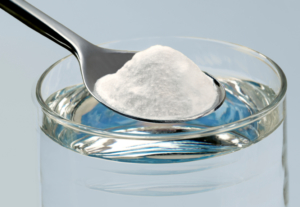If you missed the first 2 parts of this series, you can review them here:
http://buoynutrition.com/2017/10/25/digestion-weight-loss-part-2/
http://buoynutrition.com/2017/10/24/digestion-weight-loss/
Continuing on the series of how digestion impacts weight loss, we move on to the next location in the digestive tract: the stomach.
The most impactful digestion that occurs in the stomach is that of proteins. Here, the most important substance is stomach acid.
Stomach acid is known as hydrochloric acid or HCl. The stomach is a highly acidic environment and this is actually important when it comes to digestion. Most people think that having too much stomach acid is a bad thing, when in fact it is having too LITTLE stomach acid that creates problems. There are many factors that contribute to low stomach acid, among them is stress (seeing a common theme?).
Stomach acid is required to break down proteins into their basic structures (amino acids) that are used by the body. When there is too little stomach acid, this breakdown does not fully occur and can lead to food just sitting in the stomach much longer than it should. This leads to bloating and acid reflux. In addition, stomach acid is one of the first lines of defense against unfriendly bacteria. The balance of bacteria is extremely important when it comes to weight loss. We will explore bacteria in the next segment.
How does stomach acid affect weight loss?
As I mentioned, too little stomach acid allows food to sit in the stomach too long. When food sits, it ferments and creates gas and bloating. Bloating is one of the most common complaints of people who want to feel better and lose weight.
Here is a simple at-home test to determine if you have too little stomach acid.
First thing in the morning before eating or drinking anything:
Mix 1/4tsp of baking soda in 4-6 oz of cold or room temperature water. Drink the mixture and set a timer. Write down how long it took before you belched. Repeat the test for 3 mornings and get an average time.
Interpretation
Average 2-3 minutes = optimal stomach acid
Average 3-5 minutes = low stomach acid
Average over 5 minutes = very low stomach acid
If you have low or very low stomach acid, consider supplementing with HCl. In addition, be sure to not to drink too much liquid before, during, and after meals. Too much fluids will dilute your stomach acid and cause it to be less effective. Always discuss this with your doctor if you have a stomach ulcer or are taking acid-controlling medication.

